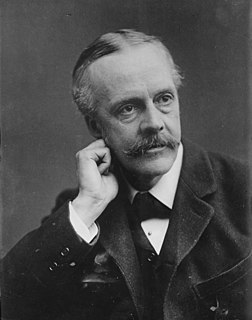A Quote by Nikola Tesla
One day man will connect his
apparatus to the very wheel work of
the universe. The very forces that
motivate the planets in their orbits
and cause them to rotate will rotate
his own machinery.
Related Quotes
I think a rotisserie is like a really morbid ferris wheel for chickens. It’s a strange piece of machinery . . . We will take the chicken, kill it, impale it, and then rotate it. And I’ll be damned if I’m not hungry! Because spinning chicken carcasses make my mouth water! I like dizzy chicken. With a side of potatoes of some sort.
Life consists of sadness too. And sadness is also beautiful; it has its own depth, its own delicacy, its own deliciousness, its own taste. A man is poorer if he has not known sadness; he is impoverished, very much impoverished. His laughter will be shallow, his laughter will not have depth, because depth comes only through sadness. A man who knows sadness, if he laughs, his laughter will have depth. His laughter will have something of his sadness too, his laughter will be more colorful.
A priest is a man vowed, trained, and consecrated, a man belonging to a special corps, and necessarily with an intense esprit de corps. He has given up his life to his temple and his god. This is a very excellent thing for the internal vigour of his own priesthood, his own temple. He lives and dies for the honour of his particular god. But in the next town or village is another temple with another god. It is his constant preoccupation to keep his people from that god. Religious cults and priesthoods are sectarian by nature; they will convert, they will overcome, but they will never coalesce.
There are forces more powerful and pervasive than the apparatus of war. You may chain a man, but you cannot chain his mind. You may enslave him, but you will not conquer his spirit. In every decade since the war Soviet leaders have been reminded that their pitiless ideology only survives because it is maintained by force. But the day will come when the anger and frustration of the people is so great that force cannot contain it. Then the edifice cracks; the mortar crumbles; one day, liberty will dawn on the other side of the wall.
A man of the best parts and greatest learning, if he does not know the world by his own experience and observation, will be very absurd, and consequently very unwelcome in company. He may say very good things; but they will be probably so ill-timed, misplaced, or improperly addressed, that he had much better hold his tongue.
I've always told Will, 'You can do whatever you want as long as you can look at yourself in the mirror and be okay.' Because at the end of the day, Will is his own man. I'm here as his partner, but he is his own man. He has to decide who he wants to be, and that's not for me to do for him. Or vice versa.
Zarathustra was the first to consider the fight of good and evil the very wheel in the machinery of things: the transposition of morality into the metaphysical realm, as a force, cause, and end in itself, is his work. [...] Zarathustra created this most calamitous error, morality; consequently, he must also be the first to recognize it.
The result of observing only the universe is anxiety. Only observing the Observer of the universe will put a stop to a man's worrying and fussing and scheming. When his interest is diverted inwards he naturally relaxes his hold - his stranglehold - on the outer world. Having withdrawn his capital and paid it into his own Central Bank (where it appreciates to infinity), he has nothing to lose out there and no reason for interfering. He knows how to let things be and work out in their own time. He's in no hurry. Knowing the Self, he can hardly fail to trust its products.
Very often pessimistic people speak against their own desire. They want to undertake some work, and they say, 'I will do this, but I don't think I shall succeed in it.' Thus they hinder themselves in their path. Man does not know that every thought makes an impression on the consciousness and on the rhythm with which the consciousness is working. According to that rhythm that reflection will come true and happen; and a man proves to be his own enemy by his ignorance of these things.





































